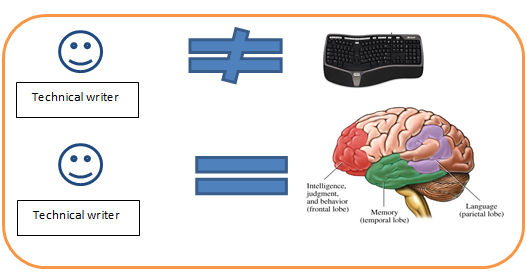I did a co-op term as a technical writer at a high tech company here in Waterloo.

The job of a technical writer varies from company to company, but essentially it involves writing text that allows customers to understand how to use technology. In my case I was documenting software changes, and the process went something like this:
- Receive an assignment. Look into the software developers’ records to determine the nature of the change. This requires a bit of detective work, including emailing or discussing the changes with the person who wrote the code.
- Try out the new feature in a sandbox, or test site. This allows a technical writer to experience what a user would when encountering the interface for the first time.
- Write up instructions to help users understand how to use the feature. This can involve condensing a page of documentation down to five or six steps. It takes longer than you might think and requires many rewrites and double checking on the test site. It also involves some critical thinking about the words we use to describe things. The instructions have to be clear, unambiguous, and very concise.
- After creating the instructions, send them back to the developer for a technical review to make sure you got all the steps right.
- Send the instructions to another technical writer for peer review. Spelling, grammar, formatting, clarity, and adherence to the company’s style guide are carefully checked.
- Enter the information into the content management system to be published and made available to clients. Double check and triple check that the copy is clean.
Technical writing requires resourcefulness, excellent research skills, precision, attention to detail, and a familiarity with various single-source publishers. In some ways it’s similar to academic writing and draws on the same skills we’ve been honing throughout our school careers. But in other ways it’s very different. The creativity comes not from expanding on original ideas, but from synthesizing a lot of information and distilling it down to the finest point possible.

In my department people came to technical writing from various different backgrounds – English, music, engineering, French, and professional writing programs. It’s a job that comes up regularly in JobMine. Give it a try, no matter what discipline you’re coming from!